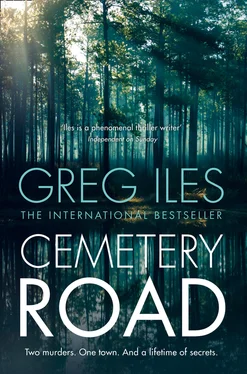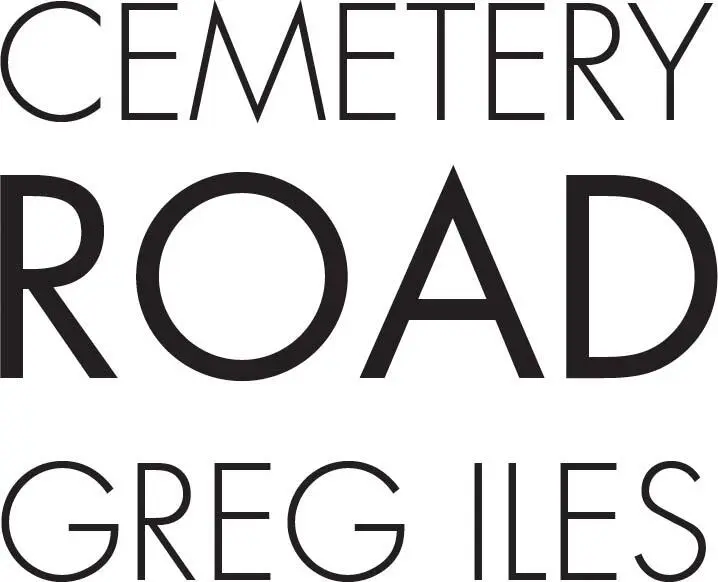
HarperCollins Publishers
1 London Bridge Street
London SE1 9GF
www.harpercollins.co.uk
First published by HarperCollins Publishers 2019
Copyright © Greg Iles 2019
Cover design by Holly Macdonald © HarperCollins Publishers Ltd 2019
Cover photographs © Shutterstock.com
Greg Iles asserts the moral right to be identified as the author of this work
A catalogue record for this book is available from the British Library
This is entirely a work of fiction. Any references to real people, living or dead, real events, businesses, organizations and localities are intended only to give the fiction a sense of reality and authenticity. All names, characters and incidents are either the product of the author’s imagination or are used fictitiously, and their resemblance, if any, to real-life counterparts is entirely coincidental.
All rights reserved under International and Pan-American Copyright Conventions. By payment of the required fees, you have been granted the non-exclusive, non-transferable right to access and read the text of this e-book on-screen. No part of this text may be reproduced, transmitted, down-loaded, decompiled, reverse engineered, or stored in or introduced into any information storage and retrieval system, in any form or by any means, whether electronic or mechanical, now known or hereinafter invented, without the express written permission of HarperCollins e-books
Ebook Edition © MARCH 2019 © ISBN: 9780008270148
Version: 2019-02-14
To all those adults who return home to repay the debt of childhood, and find they never really left. Listen while you still can.
A secret is not something untold.
It’s something which can’t be told.
—Terence McKenna
Contents
Cover
Title Page
Copyright
Dedication
Epigraph
Chapter 1
Chapter 2
Chapter 3
Chapter 4
Chapter 5
Chapter 6
Chapter 7
Chapter 8
Chapter 9
Chapter 10
Chapter 11
Chapter 12
Chapter 13
Chapter 14
Chapter 15
Chapter 16
Chapter 17
Chapter 18
Chapter 19
Chapter 20
Chapter 21
Chapter 22
Chapter 23
Chapter 24
Chapter 25
Chapter 26
Chapter 27
Chapter 28
Chapter 29
Chapter 30
Chapter 31
Chapter 32
Chapter 33
Chapter 34
Chapter 35
Chapter 36
Chapter 37
Chapter 38
Chapter 39
Chapter 40
Chapter 41
Chapter 42
Chapter 43
Chapter 44
Chapter 45
Chapter 46
Chapter 47
Chapter 48
Chapter 49
Chapter 50
Chapter 51
Chapter 52
Chapter 53
Chapter 54
Chapter 55
Chapter 56
Acknowledgments
Keep Reading …
About the Author
Also by Greg Iles
About the Publisher

I NEVER MEANT to kill my brother. I never set out to hate my father. I never dreamed I would bury my own son. Nor could I have imagined that I would betray the childhood friend who saved my life, or win a Pulitzer Prize for telling a lie.
All these things I have done, yet most people I know would call me an honorable man. I wouldn’t go that far. But I try to be a good man, and most of the time, I believe I succeed. How is this possible? These are complicated times.
And it’s not easy to be good.

HUNCHED ON HIS knees, Buck Ferris pulled a ball of fired clay from the sandy soil beside the Mississippi River, then got to his feet with a groan and climbed out of the hole beside the foundation pier. It was difficult to be certain about the era by moonlight, and he couldn’t risk a light—not here. And yet … he was certain. The sphere sitting in his palm had been fired a few centuries before Moses started wandering through the desert with the children of Israel. Ferris had been an archaeologist for forty-six years, but he’d never discovered anything like this. He felt as though the little ball were vibrating in his hand. The last human to touch this clay had lived nearly four thousand years ago—two millennia before Jesus of Nazareth walked the sands of Palestine. Buck had waited all his life to find this artifact; it dwarfed everything he’d ever done. If he was right, then the ground upon which he stood was the most important undiscovered archaeological site in North America.
“What you got there, Buck?” asked a male voice.
Blue-white light stabbed Ferris’s eyes. He nearly pissed himself, he was so stunned. He’d thought he was alone on the vast, low-lying ground of the industrial park. A quarter mile to the west, the eternal river flowed past, oblivious.
“Who are you?” Ferris asked, throwing up his left hand to shield his eyes. “Who is that?”
“You were warned not to disturb this ground,” said the man behind the light. “It’s private property.”
The speaker had a refined Southern accent that tickled Buck’s memory. He couldn’t quite place it, though. Nor could Buck say much in his own defense. He’d applied for permission to dig in this earth seven times over the past forty years, and he’d been turned down every time. But five days ago, the county had cleared the debris of the electroplating factory that had stood here since World War II. And two days from now, a Chinese company would begin building a new paper mill in its place. If anyone was going to find out what lay beneath this ground, it was now—the consequences be damned.
“Where did you come from?” Buck asked. “I didn’t see anybody when I came down here.”
“Oh, Buck … You always were a good ol’ boy. Why couldn’t you have left well enough alone?”
“Do I know you?” Ferris asked, certain that he’d heard that voice before.
“You don’t seem to.”
“I don’t think you understand the value of what I have here,” Ferris said, his voice edged with excitement.
“You don’t have anything there,” said the voice. “You’re not here.”
Buck got the gist of it then, and something started thrumming in his belly, like stretched-taut wire plucked hard. “Wait, listen,” he tried, “this ground you’re standing on … it’s an Indian settlement that’s four thousand years old. Maybe five or six thousand, depending on what I find if we dig deeper.”
“You hoping for a PBS series?”
“God, no. Don’t you understand what I’m telling you?”
“Sure. You found some Injun bones. Thing is, that’s bad news for everybody.”
“No, listen . There’s a site just like this only fifty miles from here, in Louisiana. It’s called Poverty Point. It’s a UNESCO World Heritage site. Thousands of tourists visit it every year.”
“I’ve been there. A couple of mounds of dirt, and the grass needs cutting.”
Buck realized then that this was like trying to tell a hillbilly about Bach. “That’s ridiculous. You—”
Читать дальше















